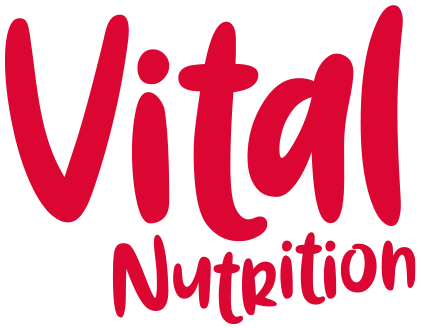Unwind your mind
This week has been Mental Health Awareness Week. A time to focus on how we can help support our mental and emotional wellbeing. Of course, in my world, nutrition is at the core of this, but diet sometimes gets overlooked in how powerful it can be to help with stress management, mood improvement and mental well-being.
In today's fast-paced world, anxiety is on the increase and recent research said that 74% of people are so stressed they have felt overwhelmed or unable to cope.
Let’s take the load off and create a plan that helps you manage stress better.
Here are my top 5 recommendations to help support your mental health and unwind your mind with the power of nutrition.
1. Cut back on stress triggering foods
Top of this list has got to be sugar. When we eat sweet, high sugar foods, we create a spike in our blood sugar levels and then we come crashing down. This causes a rollercoaster of emotions and cravings. We end up feeling ‘hangry’, stressed, more anxious with low mood and low energy.
Cut back on sugar and don’t eat sweeties between meals. If you really need a sugar hit, then it is better to eat something sweet immediately after a meal as the protein, fat and fibre in your meal will help to buffer the sugar release a little better.
2. Rethink your drinks
Too much caffeine can leave you feeling jittery, stressed and anxious. Exactly the same way we feel when stress levels are high. Cut back a little on coffee, energy drinks, cola and other high caffeine drinks, especially when stress levels are high. Try herbal teas or drink a little more water instead.
Green tea can be a good choice, as it contains an ingredient called l-theanine and despite containing caffeine, green tea can help you feel calmer and more peaceful.
Don’t be tempted to unwind with an alcoholic drink at the end of a stressful day. Alcohol disrupts sleep and can leave you feeling low, fatigued and depleted.
3. Eat regularly
Although it can be tempting to eat on the go, or skip meals when life gets busy, this is not going to do your mod or stress levels any favours.
Keep mealtimes regular and make time in your day to stop to refuel and nourish yourself.
If you are grabbing something quick and handy, step away from the sandwiches and wraps and lunchtime and think protein first. Choose salads with chicken, pick up a pot of houmous, some falafels and raw veg sticks, or even grab a bean or lentil based soup. This will give you a slow and steady release of energy in the afternoon and keep you going for longer.
4. Take a break
Give your brain a rest and get away from your desk. Even taking five minutes to step outside or make yourself a cup of herbal tea will give your brain a break and reduce feelings over overwhelm.
Exercise has amazing effects on our mental health. Even on days when you feel a bit jaded, or are short on time, getting out for a walk, bike ride or jog can help lift your mood and relieve stress levels. Never underestimate the power of movement for your mental health.
5. Supplement your diet
Visit your local, independent health food shop and discover what supplements they have to help support you with stress. The ones I use a lot with my clients contain a combination of magnesium and B vitamins (both of which are depleted when we are stressed), ashwaghanda (a herb with calming properties) or rhodiola (for stress and fatigue).
Of course, always take care with nutritional supplements if you are taking any medication and check with your GP or pharmacist before supplementing.
This blog was first published in the Irish News on Saturday 20th May 2023

